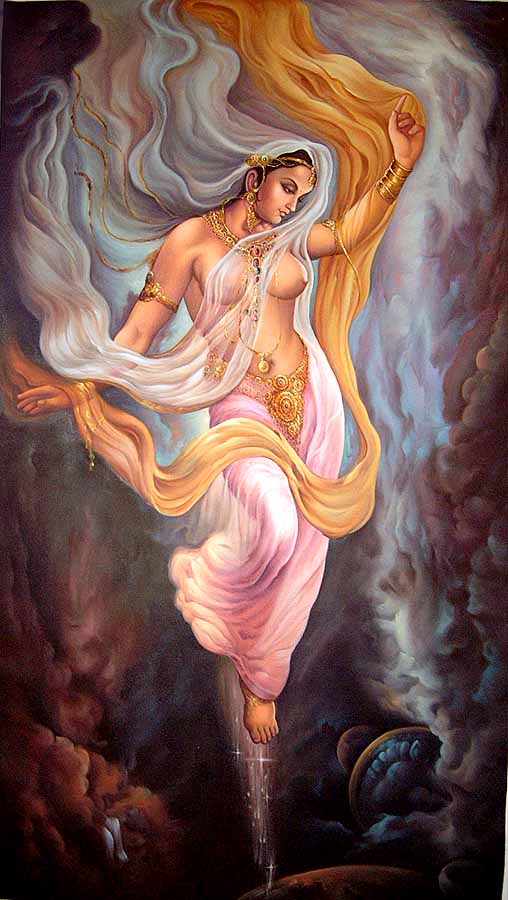In Sanskrit literature, Ganga has been portrayed in her most magnificent form. She has 108 names in Sanskrit including Jahnavi and Bhagirathi. She is also described as flowing in three streams and hence referred to as Tripathaga (one that moves in three paths) or Trisrota (one that has three streams).[1] She is an extraordinary beauty, but she is also powerful and unpredictable. She is independent minded and does not always move within the traditional boundaries of behaviour. She is the giver of life and at the same time taker of life. Her benevolence can change the lives of millions of people for the good, while her contempt can turn into a population’s worst nightmare.
One of her very well-known Sanskrit hymns says –
O Divine Ganga, the One revered by the gods,
The Saviour of the three worlds by your liquid restless touch.
The Immaculate One who resides on the head of Shiva,
Let my mind dwell on your lotus-like feet.
O Bhagirathi, the One who bestows happiness,
The power of your holy waters is exalted by the wise,
Your glory and grace is not fully within the grasp of my limited intelligence,
Protect me, Merciful Mother, from my own ignorance. (My own translation)
Ganga’s touch is experienced by the devotee like the touch of a divine Mother – loving, graceful and life-giving. By washing away everything that is harmful (spiritually and physically), she gives the ultimate gift to her children – the ultimate comfort of knowing one is taken care for, that one’s mistakes, and misdeeds have been forgiven.
She was also immortalised in the collection of poems named ‘Ganga Lahari’ (Waves of Ganga) written by a seventeenth century poet, Jagannatha. I have found the English translation of only one of his verses –
‘I come to you as a child to his mother.
I come as an orphan to you, moist with love.
I come without refuge to you, giver of sacred rest.
I come a fallen man to you, uplifter of all.
I come undone by disease to you, the perfect physician.
I come, my heart dry with thirst, to you, ocean of sweet wine.
Do with me whatever you will.’
[1] Ashok Chandra Shukla and Vandana Asthana, Ganga: A Water Marvel (Ashish Publishing House, 1995) page 44


